Last Updated on February 18, 2026 by Emma Fajcz | Published: April 8, 2019
When you’re staying in Rome, you might be wondering when do you order coffee, what to drink with dinner, or what cocktails to try at aperitvo. To help you understand what’s going on and to really join in the culture, you’ll need some local tips. Here’s everything you need to know about what to drink in Rome so you fit in like a local!
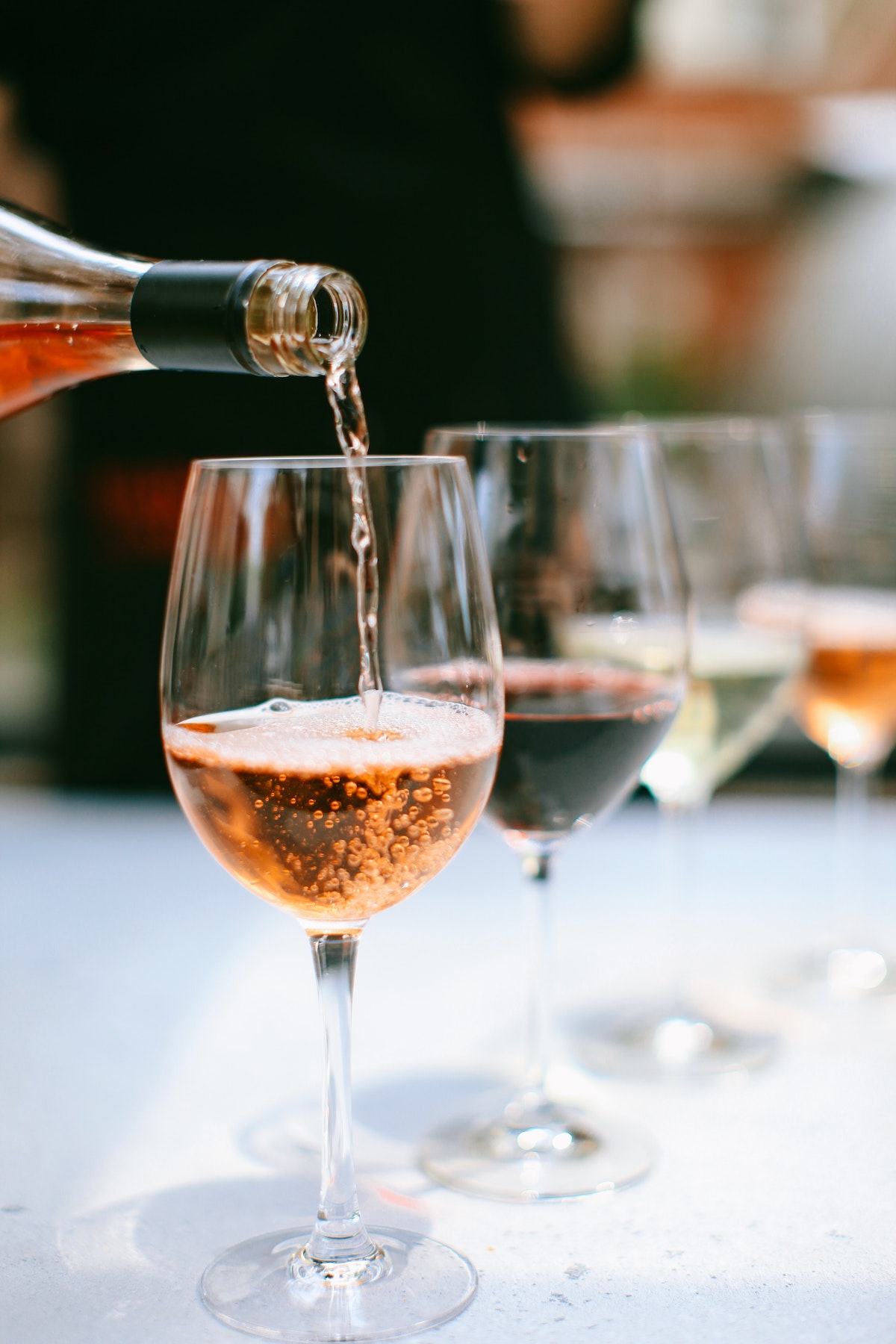
What's Included
Expert Tips for Drinking in Rome
-
In Rome, drinks are an important and integral part of our food culture. Just as we don’t have a meal without drinking, we rarely drink without eating.
-
For everything, there is a season—or at least a time, and that goes for drinks in Rome, too. Different drinks punctuate the Roman day from breakfast through the mid-morning break to dinner.
-
Entering a cafe or restaurant you’ll see a bewildering range of bottles, some familiar, some not so. Deciding what to drink in Rome can be a toss up between playing it safe or making a date with adventure.
-
Pro Tip: Look around and see what other people are drinking. Point to an interesting-looking beverage and say, “Voglio quello, per favore,” (“I’d like that, please”). Doing as the Romans do is a foolproof way to follow the rules of what to drink when, without even knowing what they are!
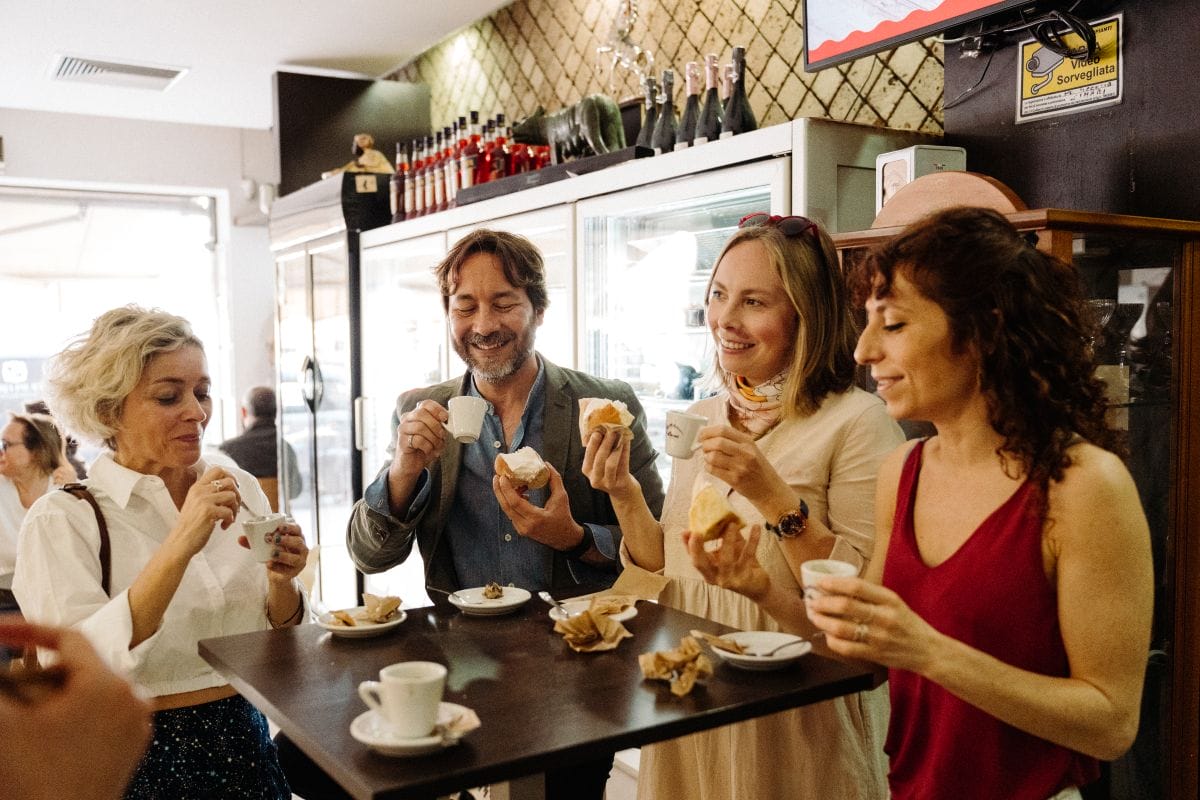
Breakfast
Coffee
The main breakfast and mid-morning drink in Italy is coffee. Ask for coffee without stipulating, and you’ll get an espresso. This is considered the basic kind of coffee in Italy. Other kinds include the cappuccino, the caffè macchiato (an espresso with a touch of milk foam on top), and the latte macchiato (milk with an espresso shot on top).
When it comes to coffee with milk, there is a simple rule to obey if you want to blend in with the locals: no milky drinks after 11 am. You will sometimes see Romans running into the bar at just before 11, checking their watches and then ordering and bolting a cappuccino just in the nick of time.
Insider Tip: Here’s our tips for ordering coffee in Italy like a local!
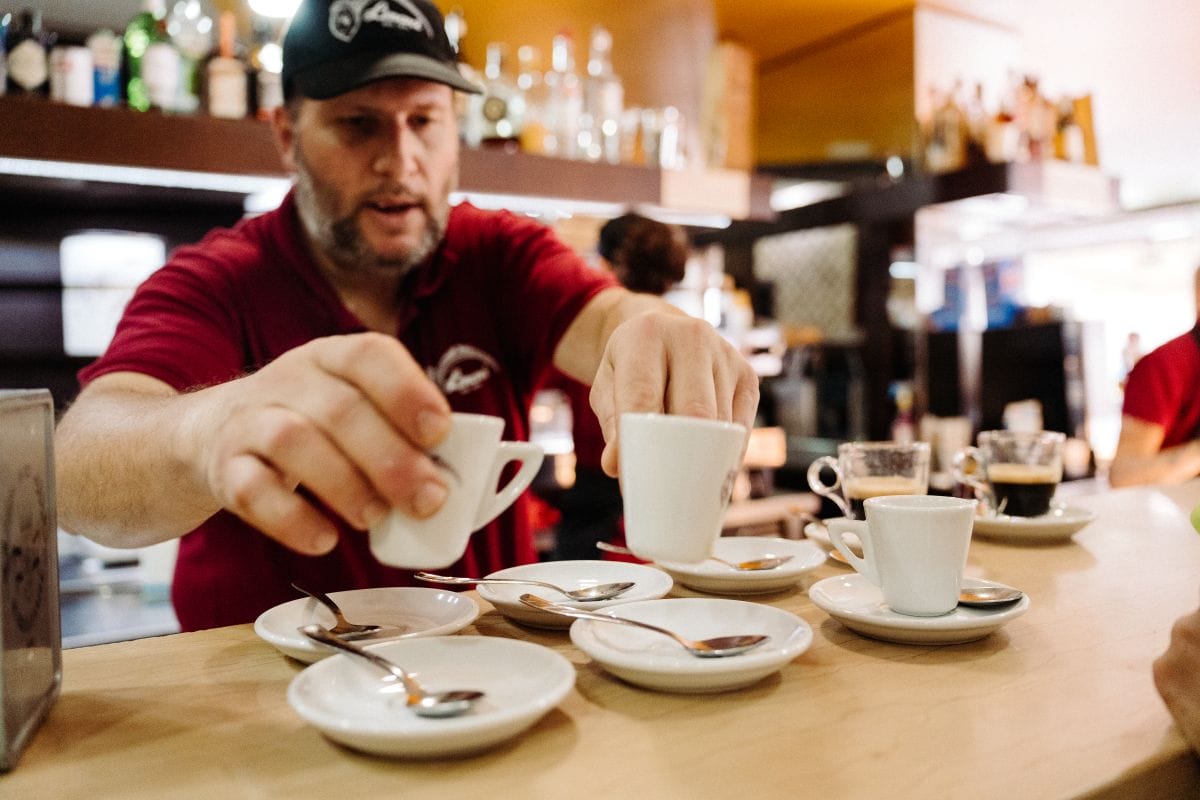
Tea
Tea is also very popular in Rome, but is almost always drunk with lemon rather than milk. Many bars will have a selection of teas from the normal to the exotic on display. Romans often enjoy tea with pastries as an afternoon snack at about 5 pm.
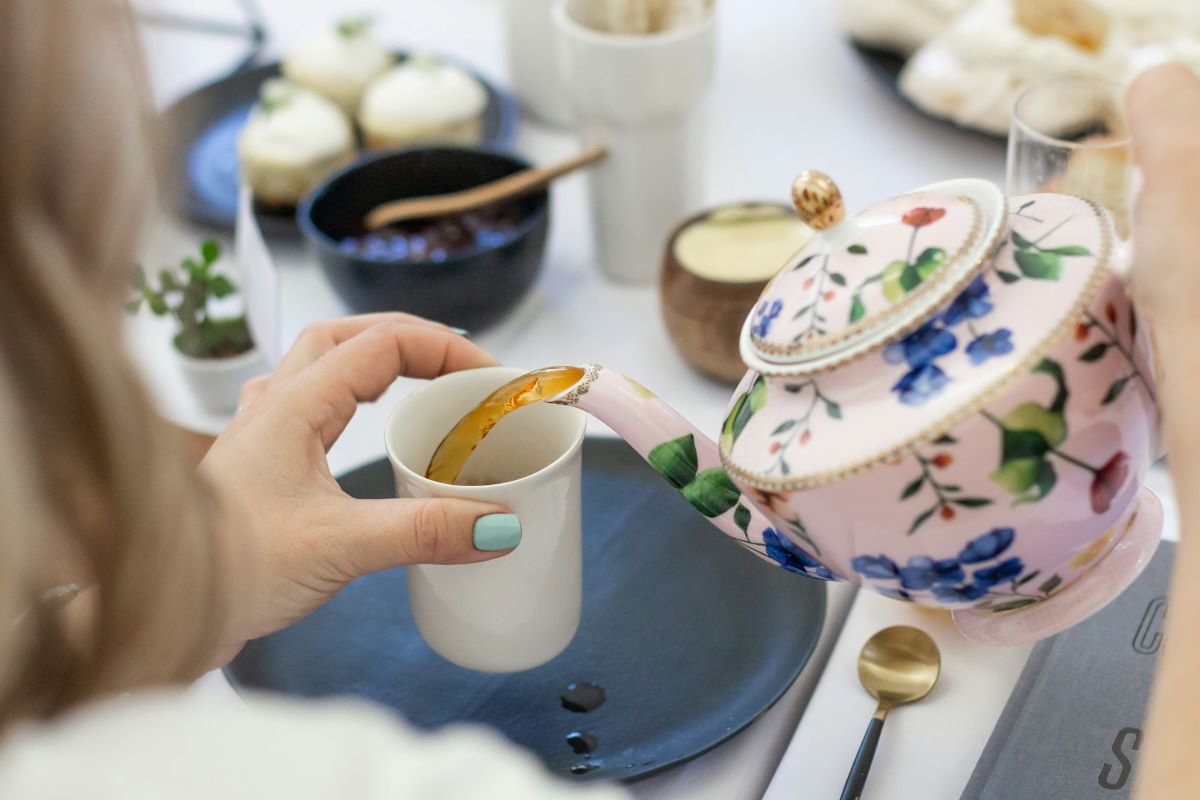
During the Day
Rome can be very hot in the summer. If you find yourself here then, you’re going to need something to sip on midday to cool you down—and lucky for you, we know just the thing.
In addition to water, we have a large range of unusual-looking soft drinks in Rome which are very refreshing. Among these are chinotto, a slightly bitter drink made from a citrus fruit of the same name, and pompelmo, a fizzy grapefruit drink. Fizzy orange, aranciata, is very popular as is Lemonsoda, a brand of lemonade.
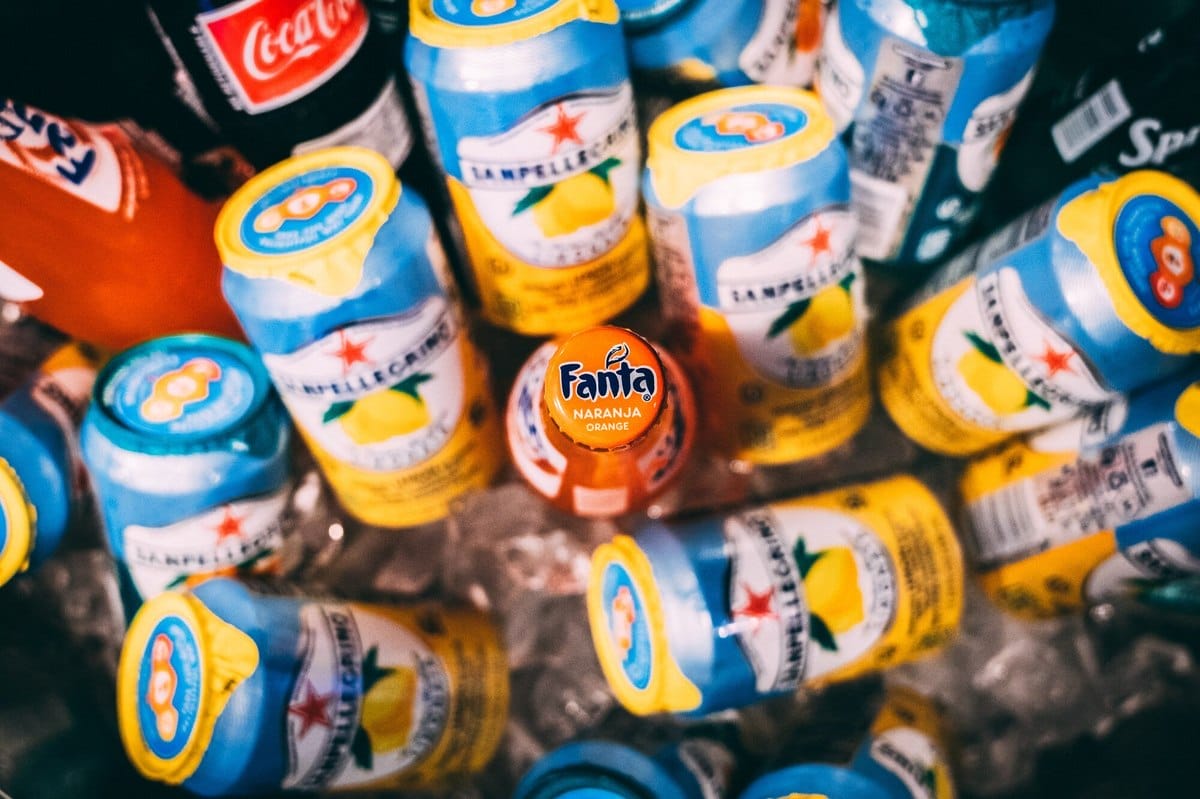
Aperitivo
Traditionally, an aperitivo was a drink before dinner, but aperitivo in Rome has now turned into a mini meal, with lots of bars in Rome offering buffets to go with early-evening drinks.
Spritzes
One of the most popular aperitivo drinks is the Aperol spritz, a bitter, orange-colored, rhubarb-based liqueur, mixed with prosecco and a shot of club soda. This isn’t the only spritz in town though! You can shake it up by asking for a spritz made with Campari (a bitter, red-colored, citrus-based liqueur), Cynar (a bitter, dark-colored, artichoke-based liqueur) or our favorite, a Hugo spritz. This last one is prosecco mixed with deliciously refreshing elderflower cordial.
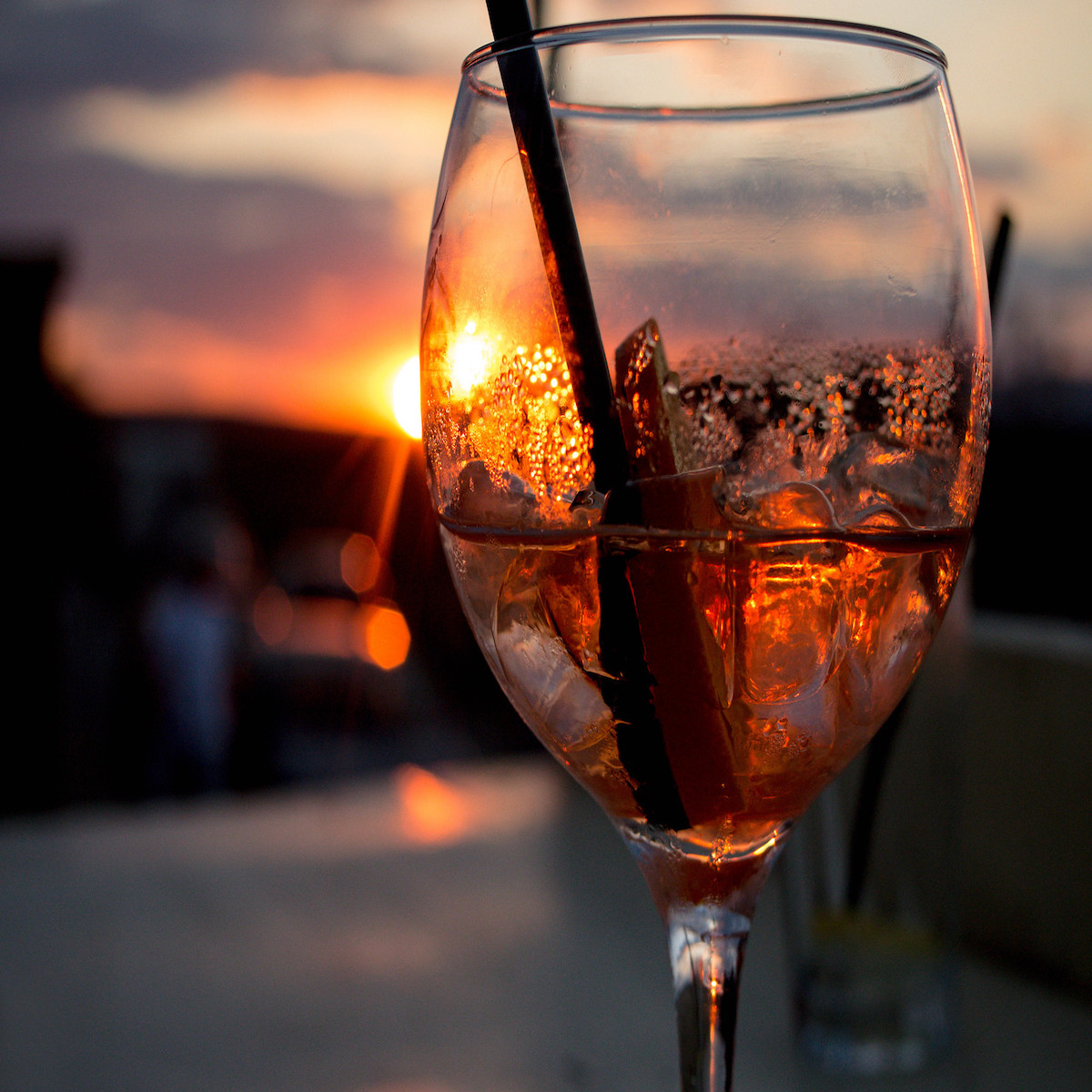
Cocktails
Aperitivo time is also cocktail hour. Popular Roman cocktails include the Negroni: gin, Campari and red vermouth; the Negroni Sbagliato: prosecco, Campari, and red vermouth; and the Campari Soda. Many bars will have a list of original proprietary cocktails for you to try as well.
Non-Alcoholic Options
There are also two non-alcoholic aperitivo drinks worth mentioning. These are Crodino (a slightly bitter drink, a bit like Campari soda) and Gingerino, a ginger-based drink. Both of these are designed to suit adult tastes, specifically for this time of day.
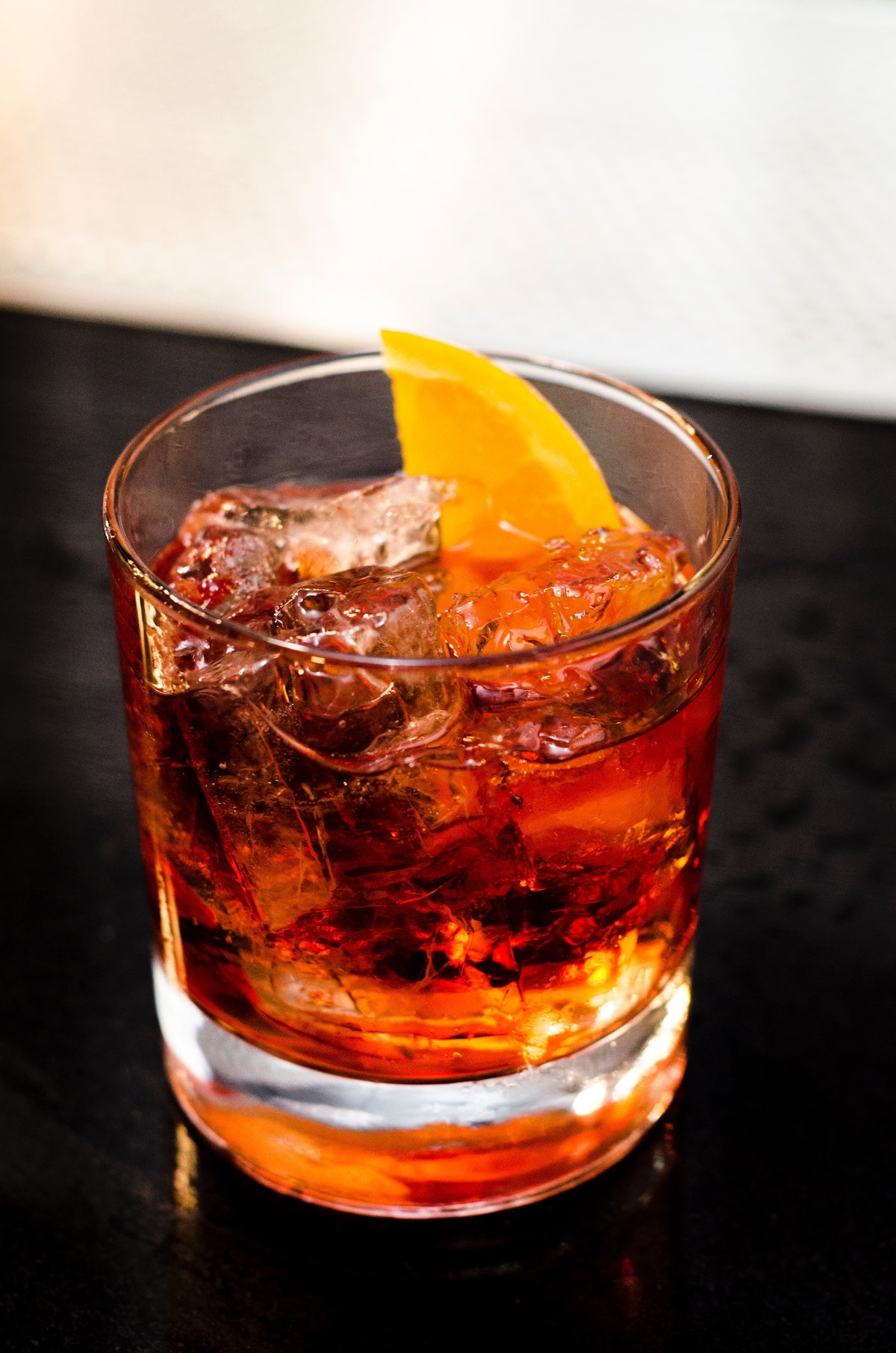
Lunch and Dinner
Water
The first question you will be asked when you sit down in a Roman restaurant is if you’d like still or sparkling water. Almost all Italians drink bottled water with their meal in restaurants and so the waiter will assume you will too.
Sparkling water in Rome is what’s known as lievemente frizzante (slightly sparkling) rather than the full-on carbonated water you find elsewhere.
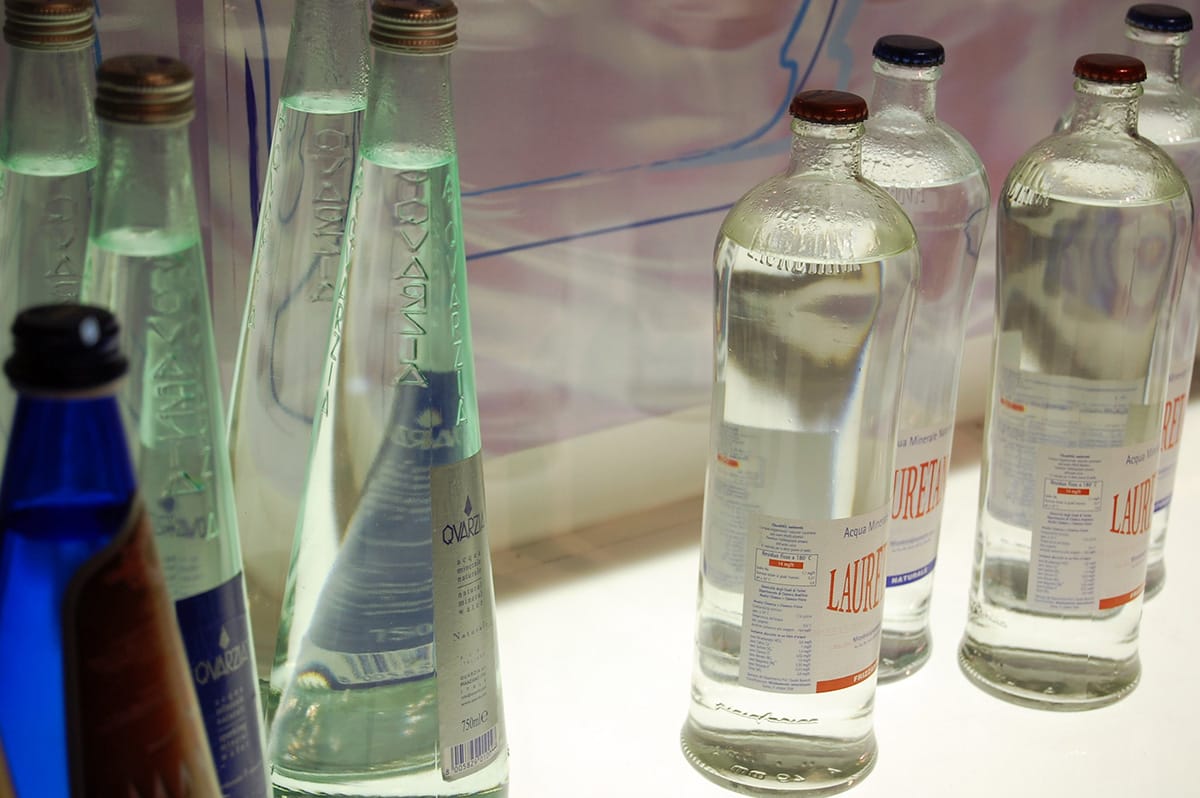
Wine
Wine is the drink of choice to pair with dinner. Cocktails are not normally drunk with food, although a few trendy restaurants have started pairing cocktails with dishes on their menus. That said, it’s much more common to drink wine—and only wine—with food.
Most restaurants will have decent house wines, both red and white, which come in carafes of various sizes. The smallest, un quartino, is ¼ liter, then un mezzo litro, ½ liter and un litro, a liter. They will also have a wine list if you want to choose something of a higher quality. (Don’t miss our 5 tips for navigating an Italian wine list!)
In Italy, it’s always a good idea to go for wines local to the region where you are, as these will suit the regional dishes better. Most wines from the area around Rome are white. The three most important DOCG wines are Cesanese del Piglio, Cannelino di Frascati, and Frascati, which can be slightly sweet or dry. (DOCG stands for Denominazione di Origine Controllata e Garantita—controlled and guaranteed origin—and is the highest level in the Italian wine quality control system.)
Other local names to look for are Bianco Capena, Castelli Romani, Colli Albani, Colli Lanuvini and Zagarolo. For a red wine Colli della Sabina is a good choice. And of course, you can always ask the waiter to recommend something local to suit your taste.
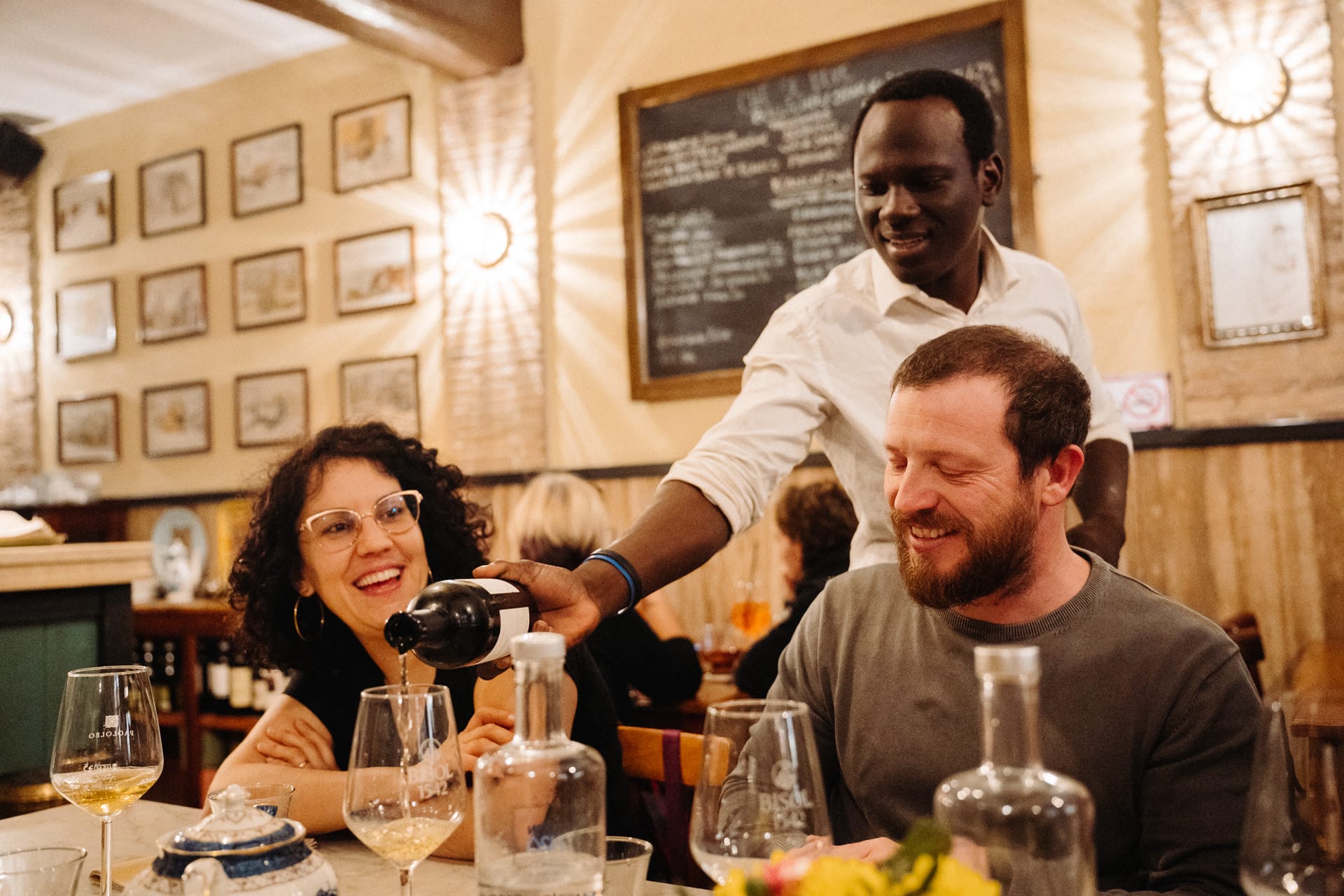
Beer
It’s worth noting that beer is rarely drunk with food—unless that food is pizza, in which case full speed ahead!
It’s served either in bottles, or alla spina (on draft). Alla spina comes in two varieties: chiara, like lager, or rossa, a deeper-colored and stronger-tasting beer.
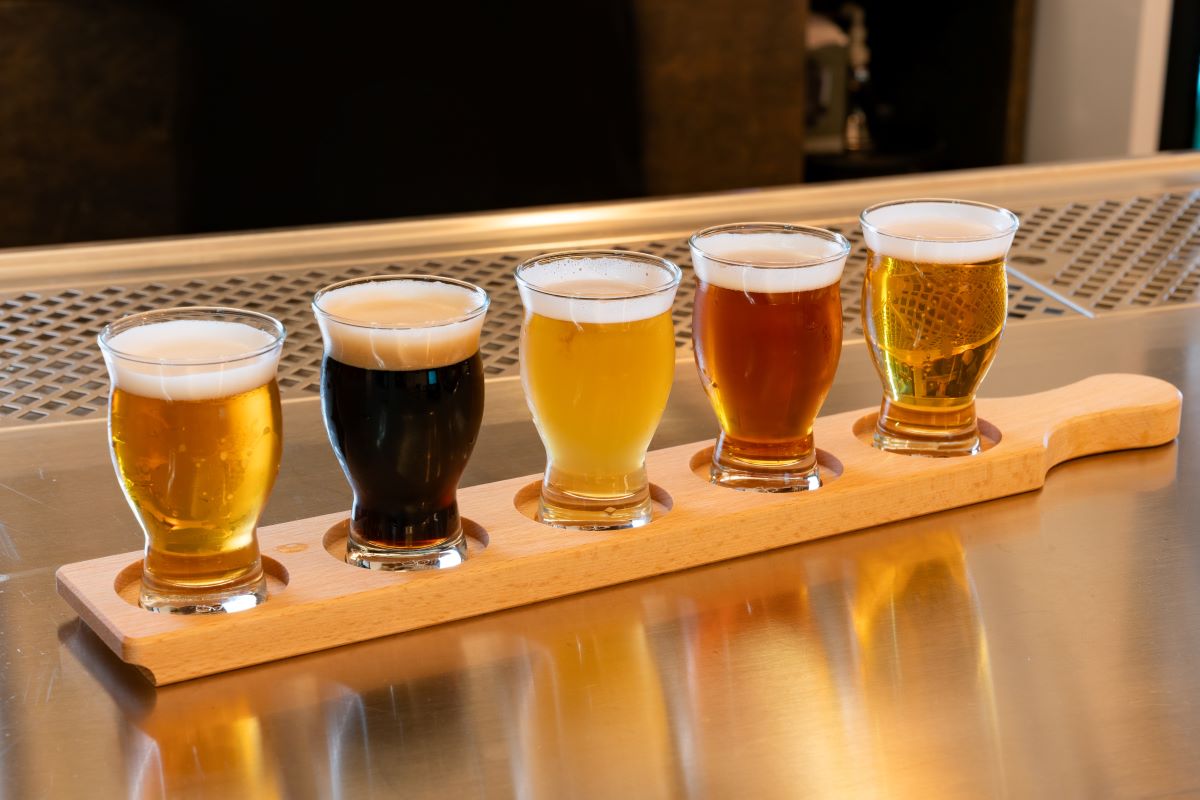
Post-Dinner Cocktails
After dinner it’s customary to have a digestivo, a nightcap to help you digest your meal. Here’s a few popular nightcap options to try:
- Amari: bittersweet drinks such as Vecchio Amaro del Capo, Averna, Fernet-Branca and Montenegro.
- Grappa: a firewater made from fermented grape skins. Grappa comes in two varieties, white or barricata, a yellow barrel-aged version which tastes a bit like whiskey.
- Limoncello: a liqueur made from steeping lemon peel in alcohol and mixing it with a sugar syrup, or liquirizia, a licorice version. These can be accompanied by an espresso but never a cappuccino (remember, it’s past 11 am!).
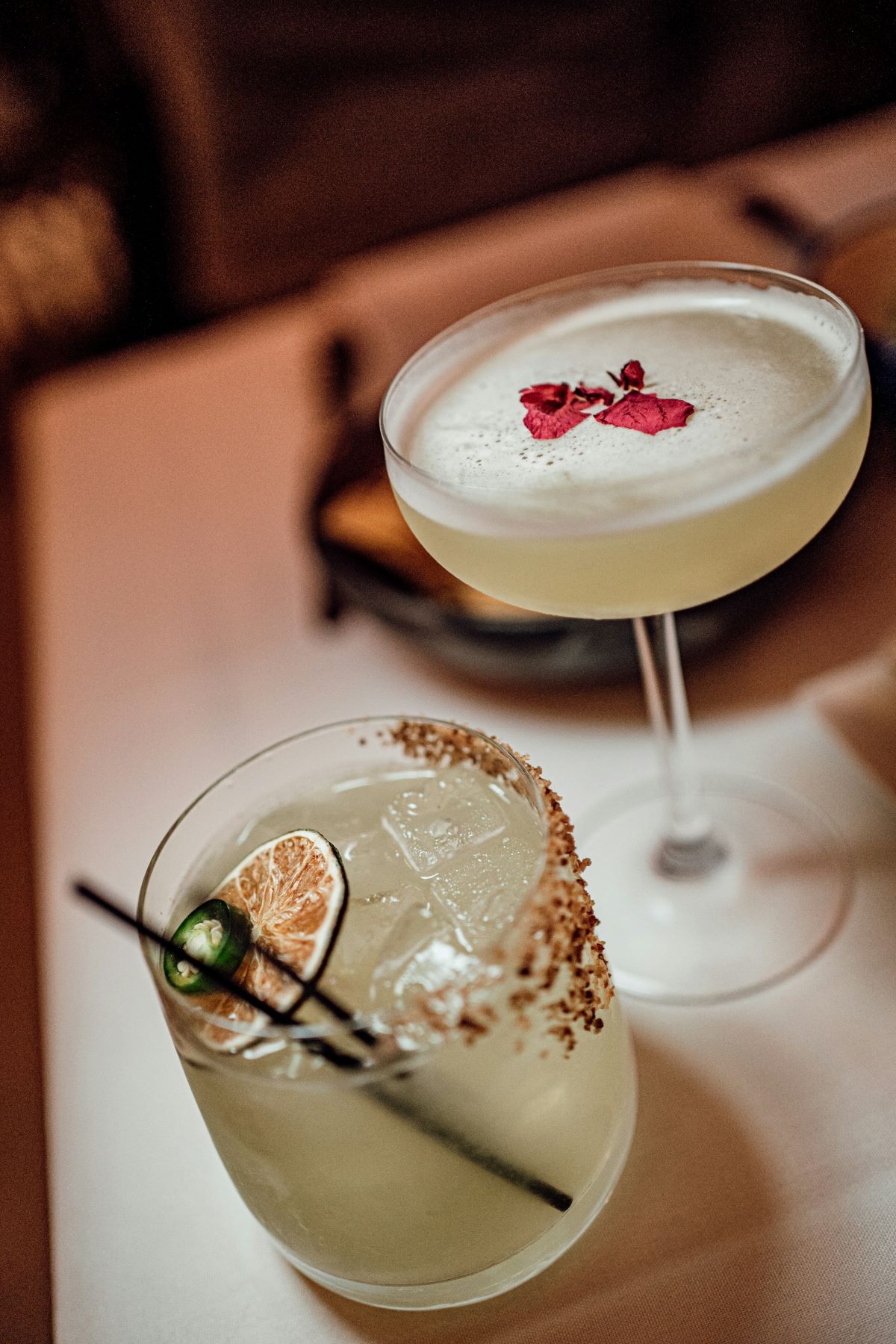
Taste (& Drink) the Best of Rome with Us!
We take our food and drink seriously here in Rome. Join us on our Testaccio Neighborhood Food & Market Tour to get an up-close look at what it means to eat and drink like a born-and-bred Roman. You’ll sample freshly brewed coffee, outstanding local wines, and more as you eat your way around one of Rome’s most authentic, off-the-beaten-path neighborhoods. Come hungry (and thirsty).
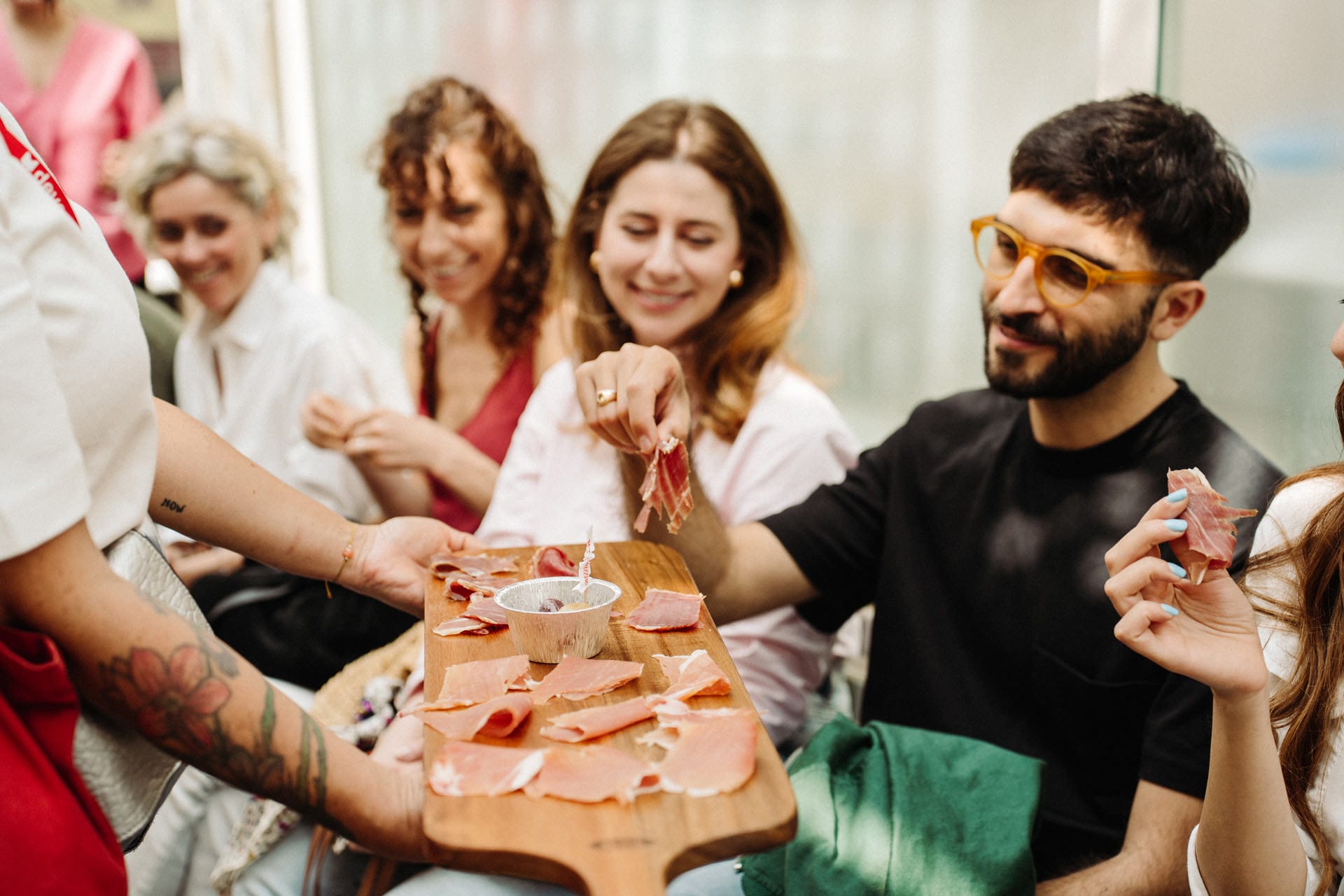
Featured Review: Testaccio Food & Market Tour
⭐⭐⭐⭐⭐ “Was a great tour, authentic food, particularly enjoyed sampling 4 different kind of pasta in the restaurant. Many thanks.”
– Bug on Tripadvisor
Drinking in Rome FAQs
What is the most popular drink in Rome?
Wine is the most popular drink in Rome and across Italy, especially local Lazio wines served with meals. Romans also love classic aperitivo cocktails like the Spritz, plus traditional Italian digestifs such as amaro and limoncello after dinner. Ordering local wine or a classic Italian aperitivo drink is the most authentic way to drink in Rome.
What is aperitivo and when do Romans drink it?
Aperitivo is a beloved Italian pre-dinner ritual where drinks are served with light snacks to stimulate the appetite. In Rome, aperitivo typically happens between 6-8 pm, and popular choices include a Spritz, Negroni, or a glass of prosecco. It’s both a social tradition and one of the best ways to experience Roman drinking culture.
Can you drink tap water in Rome?
Yes, Rome’s tap water is safe and famously fresh, flowing from public fountains known as nasoni. Alcohol is also well-regulated, and drinking wine, beer, and cocktails in Rome is generally safe when enjoyed responsibly. Visitors should stay hydrated, especially during summer, and pace themselves when sampling strong Italian spirits like amaro.
What drinks should you try in Rome for an authentic experience?
For an authentic Roman drinking experience, try local wine, a classic Aperol or Campari Spritz, and a traditional Italian amaro after dinner. Craft beer is increasingly popular, but wine remains central to Roman food culture. Sampling local specialties is one of the best ways to experience Rome.
Is it expensive to drink in Rome?
Drinking in Rome can be surprisingly affordable, especially compared to other major European capitals. House wine and beer are often inexpensive, and aperitivo deals frequently include snacks with your drink. Prices vary by neighborhood, with touristy areas typically charging more than local spots.
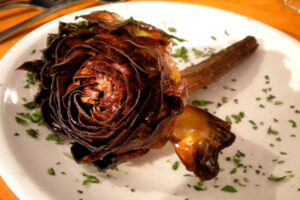
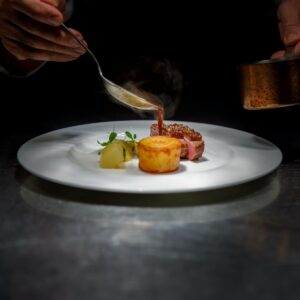







Thanks so much for reading! 🙂